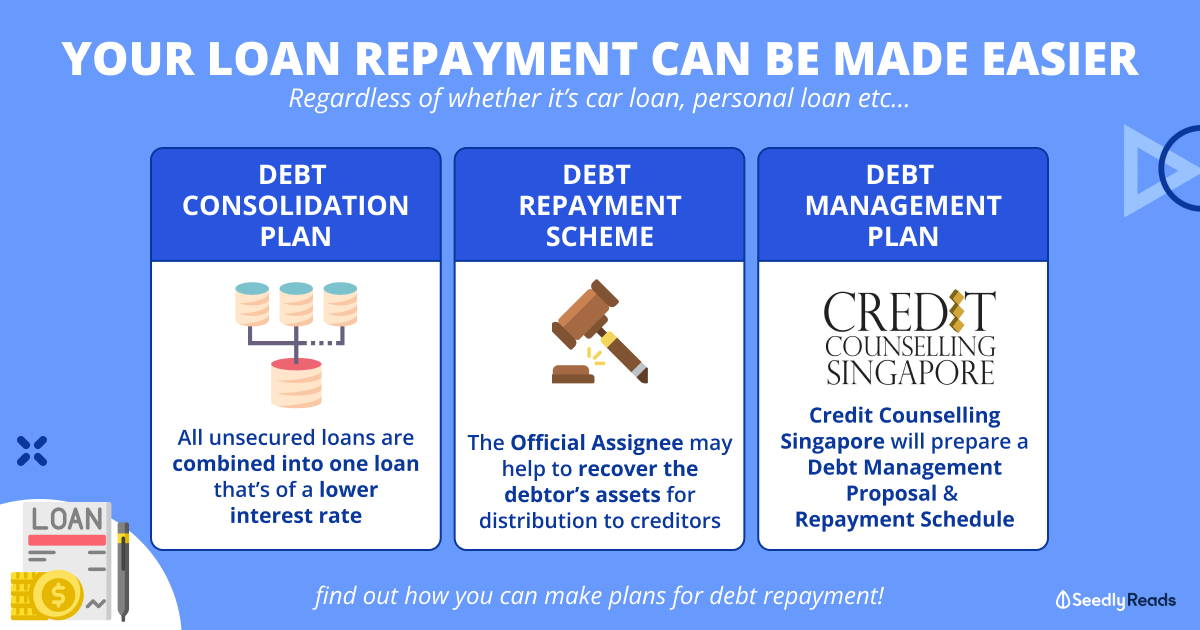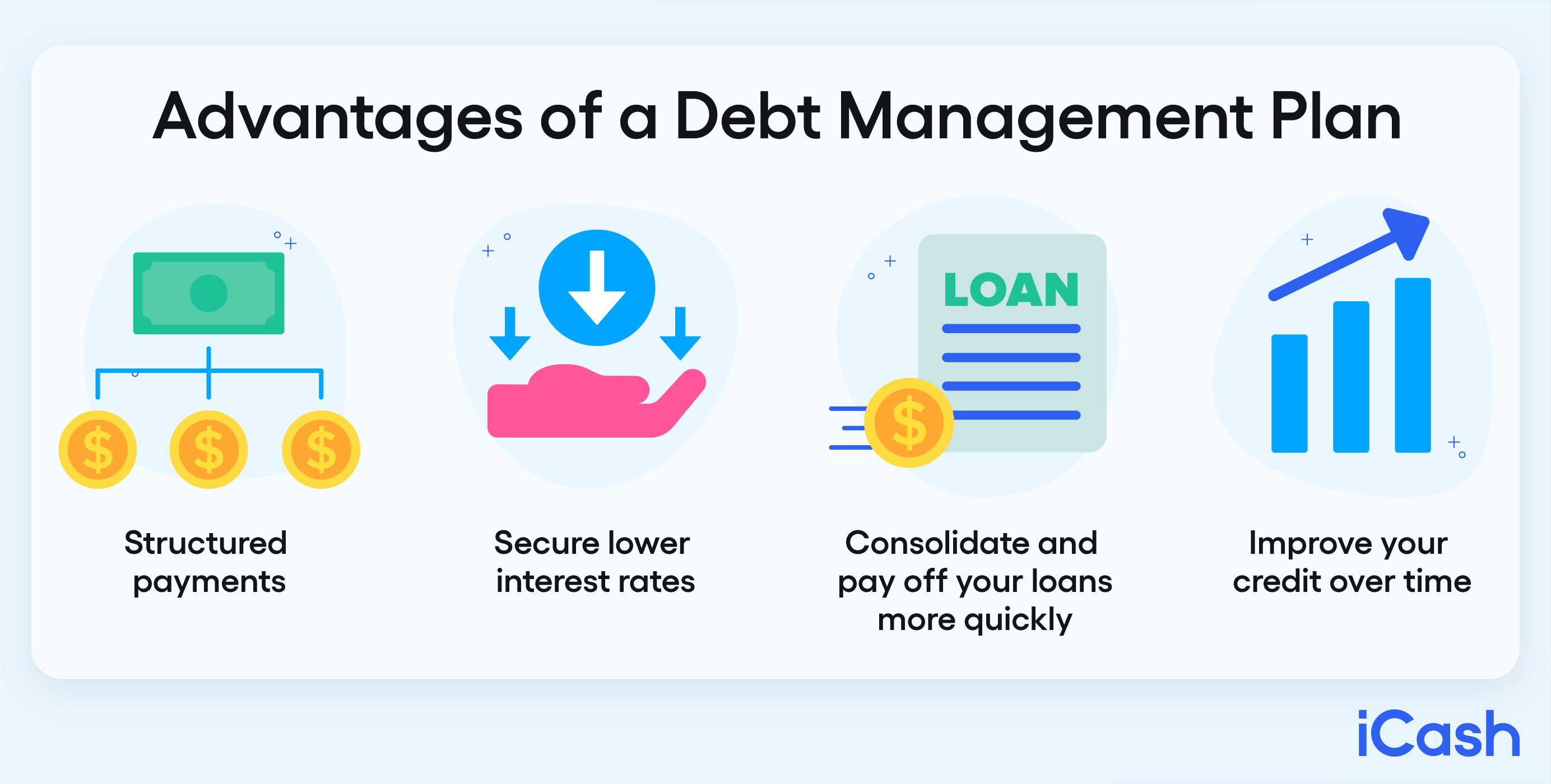A Full Guide to Debt Management Plan Services for Debt Consolidation
A Full Guide to Debt Management Plan Services for Debt Consolidation
Blog Article
Professional Tips and Approaches for Executing an Effective Financial Obligation Monitoring Strategy
When it comes to navigating the complexities of financial obligation administration, having a well-balanced plan is crucial for accomplishing financial stability. From evaluating your existing economic standing to working out with financial institutions, each step plays an essential function in forming an effective debt monitoring plan.
Evaluating Your Present Financial Scenario
Prior to embarking on a debt management plan, it is critical to thoroughly examine your current monetary standing. Recognizing your monetary situation is the foundational step in the direction of properly handling and minimizing your financial debt.
:max_bytes(150000):strip_icc()/debt-management-plans-8426688-final-1e629ab12b434dae84166092762fd8d9.png)
Developing a Realistic Spending Plan
Comprehending your existing monetary situation prepares for creating a practical budget plan that lines up with your financial debt management goals and monetary capacities. When creating a budget plan, it's essential to properly track your earnings, expenditures, and financial obligation responsibilities. Begin by providing all income sources, including wages, rewards, and any type of additional revenues. Next, describe your dealt with costs such as lease or mortgage settlements, utilities, insurance policy, and funding payments. Variable costs like groceries, home entertainment, and transport needs to also be accounted for. By classifying your costs, you can determine locations where you might require to cut down to release up funds for financial obligation settlement.

Focusing On and Taking On Debts
To successfully regain control of your finances and work towards financial stability, focusing on and tackling your debts is a crucial action in your financial debt monitoring plan. Begin by detailing all your financial debts, consisting of debt cards, financings, and any type of other impressive equilibriums. Determine high-interest financial debts that are costing you one of the most cash and prioritize paying them off initially. By focusing on these high-interest debts, you can conserve cash in the future and minimize the total amount you owe.
After determining your high-interest financial debts, think about utilizing techniques like the debt snowball or debt avalanche technique to pay them off systematically. The financial obligation snowball approach entails paying off the tiniest financial debts initially, while the debt avalanche technique prioritizes financial obligations with the highest possible rate of interest prices. Pick the technique that aligns finest with your monetary goals and inspires you to keep making progress.
Additionally, think about bargaining with financial institutions for lower rate of interest prices or establishing a layaway plan if you're having a hard time to meet your present commitments. Seeking support from a credit report therapist or economic consultant can likewise offer useful understandings and support on just how to efficiently tackle your financial obligations - debt management plan services. By review prioritizing and addressing your debts strategically, you can lead the way towards a debt-free future and enhanced financial wellness
Negotiating With Lenders
When engaging in debt management, negotiating with lenders is a crucial action in the direction of finding mutually useful solutions for financial debt settlement. Prior to launching negotiations, it is essential to have a clear understanding of your economic circumstance, including your earnings, expenses, and the total quantity of financial obligation owed.

Building Healthy Financial Habits
Incorporating regular budgeting methods is crucial for cultivating healthy economic behaviors. Budgeting permits people to track their income and expenses, enabling them to make informed choices about their financial concerns. Setting details financial objectives, such as conserving for emergencies or retired life, can offer a clear roadmap for taking care of cash effectively.
One more secret element of structure healthy monetary routines is living within one's ways. This entails investing much less than what is earned and staying clear of unnecessary financial debt. Distinguishing and adopting a frugal attitude between demands and desires can help individuals make even more prudent spending options.
Regularly reviewing monetary statements and keeping an eye on credit scores reports are essential habits that promote financial recognition and obligation. By staying educated regarding their financial standing, people can identify possible problems beforehand and take positive actions to resolve them.
Furthermore, establishing a financial savings practice, despite percentages, can contribute substantially to long-lasting monetary security. Saving on a regular basis not only builds an economic cushion for unanticipated expenses yet likewise fosters a sense of self-control and duty towards money management. By regularly practicing these practices, individuals can lay a strong foundation for a secure economic future.
Conclusion
To conclude, carrying out a successful financial obligation management plan needs a thorough analysis of one's monetary circumstance, the development of a reasonable spending plan, this website prioritizing and tackling debts, bargaining with lenders, and building healthy and balanced financial practices (debt management plan services). By following these expert suggestions and strategies, people can take control of their funds and job towards accomplishing monetary stability and freedom from debt
Recognizing your current financial scenario lays the foundation for developing a practical budget that lines up with your debt monitoring goals and monetary abilities.To effectively gain back control of your funds navigate here and job towards financial security, prioritizing and tackling your financial debts is a critical step in your financial debt management strategy.After identifying your high-interest debts, consider making use of methods like the financial debt snowball or debt avalanche method to pay them off systematically. The financial obligation snowball method includes paying off the tiniest financial obligations first, while the financial obligation avalanche method focuses on debts with the highest passion rates.When involving in financial obligation management, working out with lenders is an important step towards locating equally advantageous solutions for financial obligation settlement.
Report this page